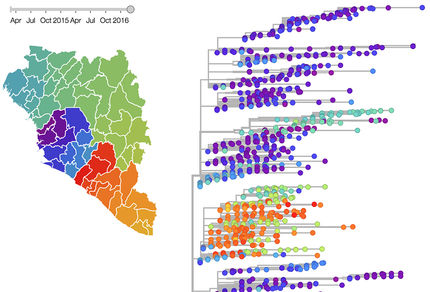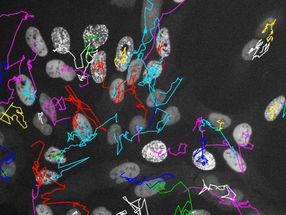New mosquito-borne disease detected in Haiti
University of Florida researchers have identified a patient in Haiti with a serious mosquito-borne illness that has never before been reported in the Caribbean nation.
Known as “Mayaro virus,” it is closely related to chikungunya virus and was first isolated in Trinidad in 1954. Most reported cases, however, have been confined to small outbreaks in the Amazon. Whether this case signals the start of a new outbreak in the Caribbean region is currently unknown.
“While current attention has been focused on the Zika virus, the finding of yet another mosquito-borne virus which may be starting to circulate in the Caribbean is of concern,” said Glenn Morris, M.D., M.P.H., director of the UF Emerging Pathogens Institute . “Hopefully we will not see the same massive epidemics that we saw with chikungunya, dengue and now Zika. However, these findings underscore the fact that there are additional viruses ‘waiting in the wings’ that may pose threats in the future, and for which we need to be watching.
The case was identified from a blood sample taken in January 2015 from an 8-year-old boy in rural Haiti. The patient had a fever and abdominal pain but no rash or conjunctivitis. Because faculty from the UF Emerging Pathogens Institute were in the region during and after the 2014 chikungunya outbreak, plasma samples were obtained from febrile children and analyzed for the presence of chikungunya virus RNA using a genetic identification technique known as reverse transcription polymerase chain reaction.
The plasma samples, which were examined by UF’s Maha Elbadry, Ph.D., in Gressier, Haiti, were then sent to EPI for additional virology and molecular analyses, focusing on the detection of chikungunya, dengue and Zika viruses. Dengue virus was detected in the patient, in addition to a “new” virus that was subsequently identified as Mayaro.
“The virus we detected is genetically different from the ones that have been described recently in Brazil, and we don’t know yet if it is unique to Haiti or if it is a recombinant strain from different types of Mayaro viruses,” said John Lednicky, Ph.D., an associate professor in the environmental and global health department at the UF College of Public Health and Health Professions and the study’s lead author.
Most read news
Other news from the department science

Get the life science industry in your inbox
By submitting this form you agree that LUMITOS AG will send you the newsletter(s) selected above by email. Your data will not be passed on to third parties. Your data will be stored and processed in accordance with our data protection regulations. LUMITOS may contact you by email for the purpose of advertising or market and opinion surveys. You can revoke your consent at any time without giving reasons to LUMITOS AG, Ernst-Augustin-Str. 2, 12489 Berlin, Germany or by e-mail at revoke@lumitos.com with effect for the future. In addition, each email contains a link to unsubscribe from the corresponding newsletter.























































